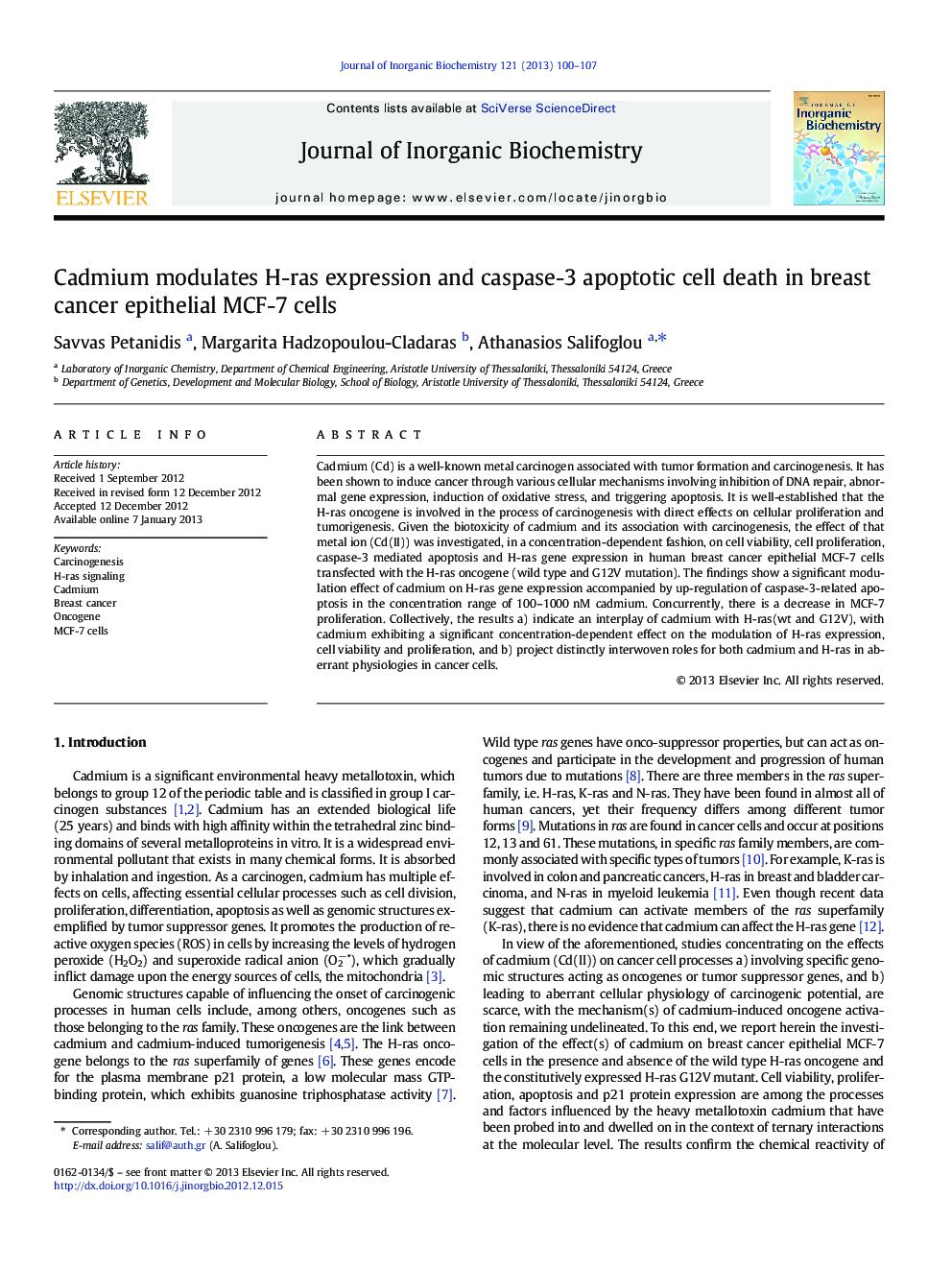| Article ID | Journal | Published Year | Pages | File Type |
|---|---|---|---|---|
| 1316048 | Journal of Inorganic Biochemistry | 2013 | 8 Pages |
Cadmium (Cd) is a well-known metal carcinogen associated with tumor formation and carcinogenesis. It has been shown to induce cancer through various cellular mechanisms involving inhibition of DNA repair, abnormal gene expression, induction of oxidative stress, and triggering apoptosis. It is well-established that the H-ras oncogene is involved in the process of carcinogenesis with direct effects on cellular proliferation and tumorigenesis. Given the biotoxicity of cadmium and its association with carcinogenesis, the effect of that metal ion (Cd(II)) was investigated, in a concentration-dependent fashion, on cell viability, cell proliferation, caspase-3 mediated apoptosis and H-ras gene expression in human breast cancer epithelial MCF-7 cells transfected with the H-ras oncogene (wild type and G12V mutation). The findings show a significant modulation effect of cadmium on H-ras gene expression accompanied by up-regulation of caspase-3-related apoptosis in the concentration range of 100–1000 nΜ cadmium. Concurrently, there is a decrease in MCF-7 proliferation. Collectively, the results a) indicate an interplay of cadmium with H-ras(wt and G12V), with cadmium exhibiting a significant concentration-dependent effect on the modulation of H-ras expression, cell viability and proliferation, and b) project distinctly interwoven roles for both cadmium and H-ras in aberrant physiologies in cancer cells.
Graphical abstractThe effects of cadmium on cell viability, proliferation, apoptosis and gene expression in MCF-7 cells was investigated in association with the H-ras oncogene. The results show an interplay of toxic Cd(II) with the H-ras oncogene (H-ras(wt)/H-ras(G12V)), denoting the significance of metal–gene correlation in the modulation of H-ras linked cancer processes.Figure optionsDownload full-size imageDownload as PowerPoint slideHighlights► Cd and H-ras (wt-G12V) oncogene influence discretely MCF-7 physiology. ► Cd affects MCF-7 cell viability-proliferation in the presence-absence of H-ras. ► Cd modulates H-ras protein expression and up-regulates caspase-3 apoptosis. ► There is a concentration-dependent interplay of tumorigenic Cd and H-ras(wt-G12V). ► Cd/H-ras(wt-G12V) association offers insight into Cd chemical tumorigenic potential.
